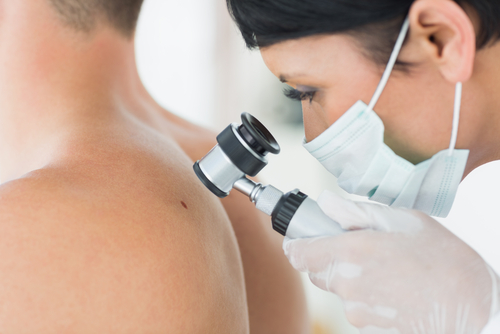
From packing picnics and hitting the bike trails to spending lazy afternoons on sandy beaches, summer gives us plenty to look forward to. But it's also the time of year you need to be extra mindful of protecting your skin and cancer prevention.
That's because exposure to the sun's rays can increase your risk of skin cancer, says Dr. Hari Nadiminti, chair of dermatology at Summit Health. "Skin cancer rates continue to go up," he says. "In fact, it's the most common form of cancer with basal cell carcinoma being the most common form of skin cancer. But by following the right precautions, you can significantly reduce your risk while still enjoying the sun."
Here are five ways he says you can do that.
1. Seek out shade
While skin cancer can affect any race, it’s more common in fair-skinned individuals. No matter how much you might long for a deep tan, remember that the shade is your friend. Try to avoid the sun's rays when they're the most harmful, between 10 a.m. and 4 p.m. And never use indoor tanning beds as they can exponentially increase your risk of melanoma—the deadliest form of skin cancer.
2. Wear sunscreen
"For skin cancer prevention, make applying sunscreen a daily habit, just like you brush your teeth every day," says Dr. Nadiminti. Choose a broad-spectrum sunscreen that will protect you from both cancer-causing UVA rays and skin-aging UVB rays. Your skin can also burn without proper protection from sunscreen. Sunburn can cause pain and long-lasting damage to the skin, which can increase a person’s risk for getting skin cancer. If you're planning to hit the pool or play sports outside, choose a water-resistant brand with an SPF of 30 or higher. Apply generously—the rule of thumb is two tablespoons for your entire body—and reapply every two hours, or immediately after swimming or sweating.
Make sure to note the expiration date on the bottle as well as when you last used it. If it's been kept in the heat or exposed to light, it's probably less effective. Better to buy a new tube rather than dig out last year's supply from the bottom of your beach bag.
3. Take note of your medications
If you're taking medications that increase the skin's sensitivity to the sun, such as antibiotics, blood pressure medications, or anti-inflammatories, you should avoid sun exposure altogether. Topical creams and serums that contain ingredients like retinol or AHA can also increase sun sensitivity, which increases your risk of skin damage, potentially leading to cancer. You can take extra precautions by wearing a broad-brimmed hat, sunglasses, and long-sleeved clothing with a UPF rating (a rating similar to SPF for its ability to block the sun).
4. Check your skin monthly
Be aware of any new moles, skin lesions that don't heal, or unusual growths with irregular borders or that are painful, itchy, bleeding, or tender to the touch. Make sure to show anything you're concerned about to your doctor right away—with skin cancer, early detection is key.
5. See a dermatologist or primary care provider for a skin check every year
Make an appointment with a dermatologist every year for a skin cancer screening check. They'll be able to see areas of your body you can't easily monitor, like your scalp or the backs of your legs. They can also evaluate or remove any suspicious moles or skin growths.
